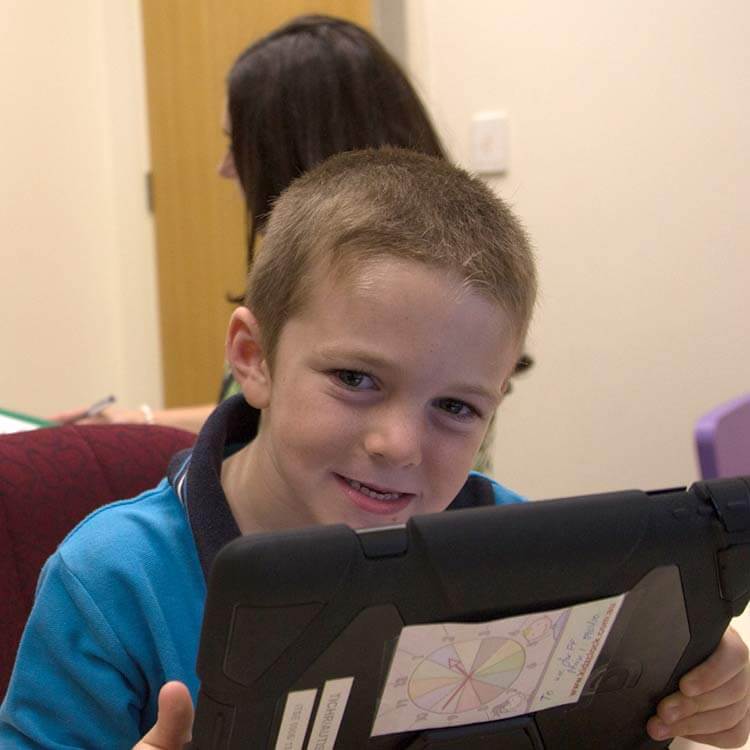Search
Research
Lived Experiences of Empowerment in Parents of Trans Children and AdolescentsThe construct of empowerment is associated with beneficial outcomes in numerous populations with well-being across multiple domains. Within families, empowerment has been found to be related to both parent and child well-being. As such, empowerment appears to be a promising concept to support parents of young (< 18 years) trans and gender diverse children and adolescents; however, what empowerment means for parents of trans children and adolescents is not known.
Research
SNO-EANO-EURACAN consensus on management of pineal parenchymal tumorsPineal parenchymal tumors are rare neoplasms for which evidence-based treatment recommendations are lacking. These tumors vary in biology, clinical characteristics, and prognosis, requiring treatment that ranges from surgical resection alone to intensive multimodal antineoplastic therapy.
Research
How can modeling responsibly inform decision-making in malaria?When models are used to inform decision-making, both their strengths and limitations must be considered. Using malaria as an example, we explain how and why models are limited and offer guidance for ensuring a model is well-suited for its intended purpose.
Research
Disparities in Diabetes Technology Uptake in Youth and Young Adults With Type 1 Diabetes: A Global PerspectiveGlobally, nearly 9 million people are living with type 1 diabetes (T1D). Although the incidence of T1D is not affected by socioeconomic status, the development of complications and limited access to modern therapy is overrepresented in vulnerable populations. Diabetes technology, specifically continuous glucose monitoring and automated insulin delivery systems, are considered the gold standard for management of T1D, yet access to these technologies varies widely across countries and regions, and varies widely even within high-income countries.
Research
Siblings of Individuals With Neurodevelopmental Conditions: Perspectives on Risk, Resiliency and Future Research DirectionsSiblings of individuals with neurodevelopmental conditions (NDCs) are at increased genetic and environmental risk for poorer psychosocial and neurocognitive outcomes compared to control groups of siblings of individuals without NDCs.
Research
Allergen Specific IgE is a Stronger Predictor of Remission Following Peanut Oral Immunotherapy Than Age in Children Aged 1–10 YearsRemission is the desired outcome following OIT as it allows individuals to discontinue treatment and eat the allergen freely. Early initiation of OIT in infants and toddlers has been embraced as an approach to increase the likelihood of remission. However, there is no high-quality evidence supporting younger age as an independent factor driving remission; available studies are limited by small samples of younger subjects and lack of adjustment for confounding covariates, particularly peanut-specific IgE (sIgE) levels which is closely cor
Research
Justice capital: Delivering equitable outcomes for indigenous children in state careThis chapter outlines the concept of ‘justice capital’. It commences with a discussion of the impacts of colonization on Indigenous people in Australia, with a particular focus on Indigenous children placed in state care systems.

Research
Multigenerational Familial and Environmental Risk for Autism (MINERvA) NetworkThe MINERvA Network will allow more accurate and precise determination of the contributions of familial and environmental factors to the etiology of autism.
Research
Predicting Problem Gambling in Young Men: The Impact of Sports Gambling Frequency and Internalizing SymptomsYoung men aged 18-25 years are at disproportionately increased risk for gambling problems compared to their older or female counterparts. The unique mechanisms that precipitate these problems in this group remain unclear. Data from the largest longitudinal cohort study on Australian men's health (the Ten to Men Study) were used to identify the psychosocial, health-related, and gambling-related behavioral predictors of problem gambling severity in 265 young men aged 18-25 years. Hierarchical multiple ordinal logistic regression analyses found these predictors to explain a moderate proportion of variance in problem gambling severity.
Research
Exploring Oral Health Related Quality of Life in Rett Syndrome Using Directed Content AnalysisNo validated oral health-related quality of life (OHRQOL) instrument currently exists for those with severe intellectual and developmental disabilities and who communicate non-verbally. This qualitative study aimed to explore the domains that were important to the oral health-related quality of life in individuals with Rett syndrome.
